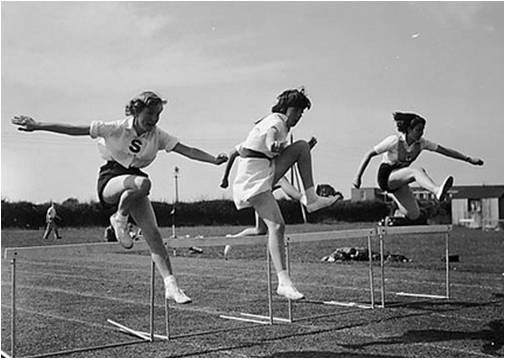
When brand guidelines become the story and stifle creativity maybe it's time for a re-think.
I have watched with fascination the trials and tribulations over the past few months of the LOCOG team charged with ensuring that an incredibly rigid set of Olympic guidelines are enforced at all costs.
Don't get me wrong, I absolutely understand the importance to the official Games sponsors of having exclusive access to the London 2012 logo. This is pure, hard-nosed sponsorship - for commercial gain -not altruism and anyone who thinks otherwise should go and enter the long jump.
Back in the day I worked on the Euro96 football tournament where I saw, first hand, the seriousness with which major sponsorship transgressions are viewed.
Before the first match at Villa Park (which, in itself, was a tough place for a Birmingham City fan to have to ply his trade) I was charged with ensuring that every single non-JVC television in the ground had it's manufacturers logo 'masked'. So, armed with step ladders, black electricians tape and a pair of scissors, I set about the task in hand and de-branded every single one of the near 200 TV's within the stadium before the gates opened.
I followed this up by checking every single executive box and public area for the merest of transgressions. So, imagine my delight when I discovered and disposed of a rogue Pepsi ice cube box in the bar area of the exclusively fuelled Coca Cola stadium. I knew that I had averted a minor crisis.
And before I took my place in the stadium I did a last final check and was horrified to find a Reebok coat hanger shamelessly hanging on the back of a door in what was an exclusively Adidas-clad venue.
I sat there a happy man, heartened by the knowledge that there wouldn't be a single bit of sponsorship transgression or ambush now. The eight major sponsors were safe. I had done my job.
... and then a Guinness blimp appeared above the stadium and the Carlsberg representatives went absolutely ballistic. Doh.
So I genuinely do understand 'some' of the actions of the LOCOG team responsible for managing this activity.
But where I think the Olympics has a major advantage, which has been utterly ignored to date, is that they actually have two logos at their disposal. The Olympic rings - the official mark of the historic event - plus the individual Games logo, in this case the London2012 visual identity.
Now, imagine if the 2012 logo had been kept sacred at all costs for the benefit of the sponsors who pay so handsomely for the pleasure but the rings were usable by anyone - butchers encouraged to recreate them with sausages and florists pleaded with to depict them in fuchsias and carnations. Village fetes, school competitions, sports clubs - the list of positive associations would have been high, wide and long.
And how different the atmosphere and public feeling towards the Games would have been.
Creativity would have gone into overdrive and a much greater sense of occasion and pride would have evolved I'm sure.
The people's Games, the people's Rings.
If you happen to live outside London and you don't interact with the BBC you'd be hard pressed to know that the Olympics was about to commence. Visibility to it is very low on high street up and down the UK. Shop windows display nothing. There was actually more buzz around the Jubilee.
It will all be forgotten, of course, when the Games proper begin, and again when Team GB pick up their first gold, but I can't help think that this was all a bit of a missed opportunity.
And I wonder if it will all be the same in Rio in 2016 or whether some lessons will be learned.
Darren Caveney is co-creator of comms2point0
Sign up for our weekly email. You can do that here.
